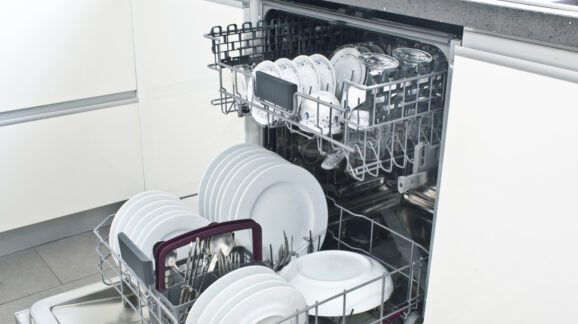CEI submits comments on latest Biden administration dishwasher proposal

Photo Credit: Getty
The Biden administration’s efforts targeting gas stoves received a lot of attention in 2023 and sparked an angry public backlash, but many other major home appliances have since been hit with equally bad regulations. Most of these are Department of Energy (DOE) efficiency standards, and CEI has submitted comments critical of the ones for water heaters, washing machines, furnaces, as well as stoves. Some of these rules raise the up-front cost of appliances more than will likely be earned back in the form of energy savings. Other rules deprive consumers of choices, or they compromise appliance performance. Some may do both. And at the same time the Biden bureaucracy is furiously cranking out problematic new regulations, it is also blocking efforts to fix problems created by past regulations, most recently with its dishwasher proposal issued on November 8th. Today, CEI submitted comments critical of this proposal.
The dishwasher efficiency standards currently in place have led to a doubling of the time it takes to clean a normal load of dishes, from about an hour in models before government regulations to two or more hours once Washington started meddling with them. DOE has admitted the problem as far back as 2016, saying that “[t]o help compensate for the negative impact on cleaning performance associated with decreasing water use and water temperature, manufacturers will typically increase the cycle time.”
It is for this reason that CEI in 2018 petitioned the agency to correct the problem, documenting the widespread public opposition to longer cycle times and noting that the underlying law, the Energy Policy and Conservation Act of 1975, forbids efficiency standards that harm consumers by depriving them of the features they want.
In 2020, the Trump DOE granted CEI’s petition and initiated the process of bringing back faster dishwashers. But in 2022 the Biden administration repealed the 2020 rule and put a stop to any regulatory reforms. This action was challenged in federal court by 11 state attorneys general. CEI joined FreedomWorks in submitting an amicus brief in this case, highlighting the failure of DOE to justify its refusal to set a rule allowing for the faster dishwashers that consumers prefer.
On January 8, 2024, in Louisiana v. United States Dept. of Energy, the US Court of Appeals for the Fifth Circuit granted the state attorneys general petition, remanded DOE’s 2022 repeal rule back to the agency, and provided a detailed rebuke of the agency’s reasoning as arbitrary and capricious.
In addition to questioning whether the agency has authority to regulate water use in dishwashers – the statute only specifies energy use – the court noted that the agency failed to adequately consider the inconvenience to consumers of the longer cycle times caused by its rules. The court also pointed out the counterproductive nature of so-called efficiency standards that force consumers to “use more energy and more water to preclean, reclean, or handwash their stuff before, after, or in lieu of using DOE-regulated appliances.”
On remand, the agency largely ignored the court decision, downplayed the role of its regulations in increasing cycle times, and has again proposed to not go forward with a one-hour standard for dishwashers.
In response, CEI’s comments conclude that “[t]he impact of previous dishwasher standards on cycle times is perhaps the clearest example yet of a DOE appliance regulation that crossed the line. To comply with the law, as well as best serve the interests of consumers, DOE should withdraw its proposal and renew the rulemaking process for one-hour dishwashers…”
Fortunately, the incoming Trump administration is likely to reverse this anti-consumer dishwasher regulation inherited from President Biden. Other appliance rules may also be a target. But beyond undoing specific rules, the president should work with Congress to end or at least seriously curtail the appliance regulatory program in its entirely. It is time to put a stop to bureaucrats harming consumers with appliance regulations they don’t want.